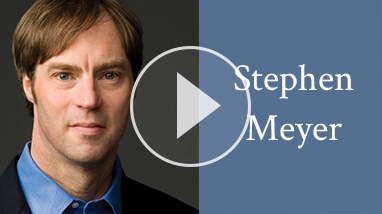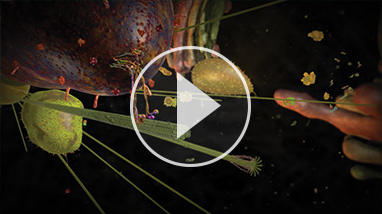If the publication in 2013 of Stephen Meyer’s book, Darwin’s Doubt: The Explosive Origin of Animal Life and the Case for Intelligent Design, tells us anything, it’s that the evolution debate in fact continues. More than that, like a storm, it is gathering strength and advancing steadily. Darwin’s Doubt was a major step forward. Now the controversy has advanced still further. The paperback edition of Meyer’s landmark work is now available, with a new 35-page Epilogue in which Dr. Meyer answers the more substantive challenges to his argument — from scientists including Charles Marshall, Donald Prothero and Nick Matzke, focusing on the origin of biological information, the duration of the Cambrian explosion, cladistics and the mystery of the missing ancestors. Read More ›



